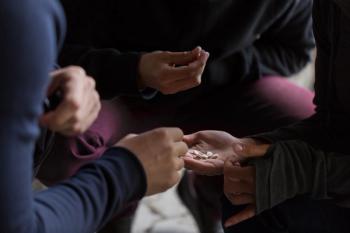
Study suggests sleep influences risk of suicidal ideation in young people
Investigators suggest confronting sleep difficulties among patients with suicidal ideation through cognitive behavioral intervention could reduce effects of affective reactivity to interpersonal events.
New data from Rutgers University suggests that purposeful targeting of sleep and emotion regulation could reduce the risk of suicide among adolescent and young adults who are at high-risk.
The study, which was led by Jessica L. Hamilton, PhD, of the Department of Psychology at Rutgers, identified affectivity reactivity as a proximal mechanism through which sleep indices could influence the risk of daily suicidal ideation (SI).
Currently, suicide is the second leading cause of death among adolescents and young adults.
“Despite advancements in understanding risk factors for suicidal ideation and behavior, our ability to predict suicide using established risk factors remains only slightly better than chance,” Hamilton wrote.
For the current study, Hamilton and a team of investigators examined affective reactivity related to interpersonal events as a mechanism in which disrupted sleep with be associated with SI among these patient population.
Recruitment and Methods
Adolescent and young adult participants with high risk for suicidal behavior were recruited from 2 Intensive Outpatient Programs (IOP), which were established for secondary students and college students.
Among the 203 individuals approached for the study, 59 had contributed data via clinical interviews and self-report questionnaires that were issued at baseline and at monthly follow-up visits..
A majority of participants were White (76%) and female (75%), with an age range of 13-23 years.
Participants were tasked with earing actigraphic devices that would require twice-daily ratings for 2 months that occurred 30 minutes after waketimes and 45 minutes before bedtimes.
Those who endorsed any level of suicidal ideation during these assessments were sent an automated message that prompted participants to contact the emergency phone numbers featured in the study if they did not feel safe.
In addition to monitoring sleep and SI, investigators approached participants about daily positive and negative events in their lives. For negative events, participants responded to the question “How stressful/upsetting was your most negative event (conflict/excluded/insulted) today?” on a scale of 0 to 100, with the highest number representing an “extremely upsetting” response.
Positive events were measured in a similar fashion (0 to 100), with the highest number representing “extremely enjoyable”.
The Findings
Among a sample of the 59 participants included in the study, 44% had reported a past suicide attempt. Among all participants, 74.58% reported SI on at least 1 day of the study period.
There were 481 days when participants endorsed SI, and 466 days when participants reported SI intensity.
Those who reported more effective reactivity to negative interpersonal events reported less affective reactivity to positive interpersonal eventd (P<.001), and ICC analyses found considerably variability regarding sleep domains (58–77%), affective ratings for interpersonal events (74–76%), and SI occurrence (75%) and intensity (80%).
Within-person fluctuations in sleep timing and sleep quality predicted affective reactivity to positive interpersonal events, and later-than-usual sleep timing and poorer-than-usual sleep quality predicted lower levels of next-day affective responsiveness to positive interpersonal events.
However, within-person changes in affective reactivity to negative interpersonal events were not predictors for sleep duration, timing, or quality on any given night.
Hamilton and colleagues believed the data from this study demonstrated the importance of considering potential mechanism regarding sleep and their effect on SI.
The team added that confronting sleep difficulties among these patients through cognitive behavioral intervention could reduce effects of affective reactivity to interpersonal events.
“Our findings indicate that several dimensions of sleep health and affective reactivity may constitute important, novel, and more precise targets for suicide prevention in adolescents and young adults,” they wrote.
The study,
Newsletter
Access practical, evidence-based guidance to support better care for our youngest patients. Join our email list for the latest clinical updates.






